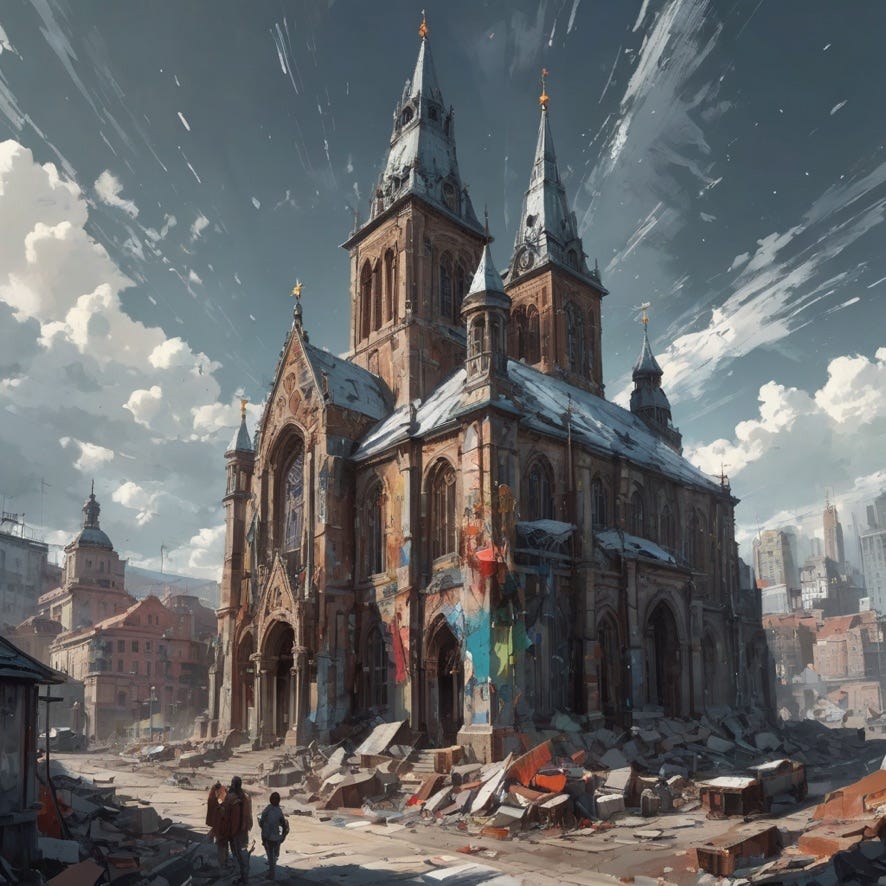Ziklag R8.15 - Expensive Isolation
Solzhenitsyn, Good and Evil
SOS Discipline - Daily Proverb and Red Letter Reader
The wicked punish themselves by joining together. cf Pr. 11.21
It’s not about your dreams. cf Mt. 10.34
Solzhenitsyn
Alexander Solzhenitsyn, born on December 11, 1918, in Kislovodsk, Russia, stands as one of the most profound literary and philosophical figures of the 20th century. His life was marked by intense suffering and extraordinary moral courage, which shaped his worldview and writings. Solzhenitsyn’s experience in Soviet labor camps, where he was imprisoned for his criticism of Stalin, forged his commitment to truth, personal responsibility, and the exposure of totalitarianism’s evils.
Solzhenitsyn believed deeply in the transformative power of truth, famously stating, “One word of truth shall outweigh the whole world.” This principle guided his life’s work, particularly in his seminal text, The Gulag Archipelago, where he meticulously documented the horrors of the Soviet labor camps. He argued that the silence and denial of evil allow it to grow, writing, “In keeping silent about evil, in burying it so deep within us that no sign of it appears on the surface, we are implanting it, and it will rise up a thousandfold in the future.”
A cornerstone of Solzhenitsyn’s philosophy was the idea that the battle between good and evil is not merely a societal or political one but an internal struggle within each individual. He eloquently expressed this in his assertion that “The line separating good and evil passes not through states, nor between classes, nor between political parties either—but right through every human heart.” This belief underscores his call for personal moral responsibility, a theme that runs through much of his work.
His critique of Western materialism and moral decay is just as scathing as his condemnation of Soviet communism. In his 1978 Harvard Commencement Address, he remarked, “A decline in courage may be the most striking feature which an outside observer notices in the West in our days.” Solzhenitsyn saw the West’s embrace of comfort and avoidance of moral and spiritual challenges as a dangerous path, leading to a loss of meaning and purpose in society.
Solzhenitsyn’s reflections on suffering are particularly poignant. Far from seeing suffering as purely negative, he believed it could be a source of profound personal growth. “Bless you, prison, for having been in my life,” he wrote, recognizing that his time in the Gulag allowed him to see life’s deeper truths. This belief in the redemptive power of suffering is central to his philosophy, suggesting that hardship can strip away illusions and reveal fundamental truths about the human condition.
Another crucial aspect of Solzhenitsyn’s thought is his view on history and human nature. In his epic work, The Red Wheel, he explores the forces that shape history, warning that “History’s worst tragedies are written by the hands of men who believed they were being righteous.” This quote reflects his deep skepticism of ideologies and the dangers of moral absolutism, which can lead to catastrophic consequences when individuals and nations believe they are infallibly right.
Solzhenitsyn’s critique of modern education is equally sharp. He saw it as increasingly detached from reality, warning that “Too much of what is called ‘education’ is little more than an expensive isolation from reality.” He believed that true education should ground individuals in the realities of life, rather than insulating them from the world’s complexities.
He also spoke against the modern tendency to view success with suspicion, observing that “There’s now a world in which the success of others is a grievance, rather than an example.” Solzhenitsyn feared that this attitude leads to mediocrity, as society increasingly resents and undermines those who achieve excellence, rather than seeing them as models to emulate.
In his analysis of fairness and social justice, Solzhenitsyn questioned the very foundations of what is considered “fair.” He provocatively asked, “What is your ‘fair share’ of what someone else has worked for?” This question challenges the entitlement mentality he saw growing in society, advocating instead for a philosophy of self-reliance and personal achievement. He believed that “any freebies you get should be a bonus, not an expectation,” stressing the importance of earning one’s way in life.
Solzhenitsyn’s philosophy also includes a profound critique of moral relativism and the loss of spiritual values. “We have forgotten God; that is why all this has happened,” he stated, summarizing his belief that the root cause of societal decay lies in abandoning spiritual and moral foundations. For Solzhenitsyn, the loss of a higher moral compass leads to the rise of tyranny and the degradation of human dignity.
His legacy is one of relentless truth-telling and a deep commitment to moral courage. Solzhenitsyn’s writings continue to inspire those who seek to confront tyranny, uphold the dignity of the human spirit, and engage in the internal struggle against evil. His work is a powerful reminder that the fight for truth and justice begins within each individual, and that it is through this personal moral battle that society as a whole can be redeemed.





